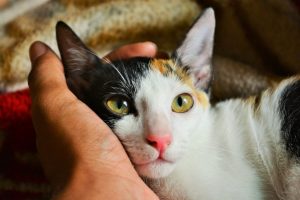
It can be difficult to say whether your cat is ill and whether she needs veterinary care. As a cat parent, you should keep an eye out for signs of serious illness and be ready to take your kitty to the veterinarian when necessary. Since sick cats hide out of habit, it is up to you to tune in and to help. In this blog, there are seven common feline illnesses and their symptoms you need to be aware of:
Upper Respiratory Infections
Upper respiratory infections, which are common in cats of all shapes and sizes, are at the top of the list. These can also affect other cats in your household, so it’s necessary to have your cat handled for their own safety as well as the well-being of others. Upper respiratory infections (URIs) are infections of the head, nose, mouth, and sinus region that can be spread by sneezing, coughing, or licking. Among the signs are:
- Sneezing
- Congestion
- Fever
- Depression
- Open Mouth Breathing
- Coughing
- Gagging
If your cat gets infected, they will become carriers for life, passing on the disease to other cats. Owners can avoid this by bringing their cat in for annual veterinarian visits and vaccines. As this disease is only spread between cats, keep your cat indoors as much as possible and restrict their exposure outside.
Diabetes
Diabetes mellitus develops when a cat does not produce enough insulin to regulate glucose levels or blood sugar. If remains unaddressed, it can cause a variety of severe symptoms, including:
- Thirst
- Increased urination
- Increased hunger or lack of appetite
- Vomiting
- Dehydration
- Motor control issues
- Coma
- Death
Diabetes, if not properly treated, can shorten a cat’s life and trigger nerve problems, a number of health issues, and life-threatening emergencies. Management is the goal of treatment, which can require insulin injections and proper monitoring of their glucose levels using a portable blood glucose monitor.
Chronic Kidney Disease
When the kidneys stop working properly, you may notice increased hunger, more increased urination, nausea, and lethargy. This is a chronic illness, which means that symptoms can intensify over time. Prescription foods, blood pressure management, and other renal support drugs are among the medical treatment.
Hyperthyroidism
This hormonal imbalance often causes cats to lose weight and become highly hyperactive. It can also make them thirsty and cause them to shed more than normal. They can also seem to be constantly hungry.
The symptoms are identical to those of many other age-related illnesses, and your veterinarian will run a battery of tests to determine whether or not your cat has this hormonal imbalance. Treatment typically involves taking drugs on a daily basis to keep the hormones in order.
Feline Immunodeficiency Virus (FIV)
The Feline Immunodeficiency Virus (FIV) is a virus that, like HIV in humans, attacks the immune system of cats, rendering them more vulnerable to a number of illnesses and infections. While FIV cannot be cured, it can be managed. Cats with FIV would need to be treated for the remainder of their lives to help them combat infection. FIV signs include:
- Fever
- Bad coat or hair loss
- Sneezing
- Swollen lymph nodes
- Dental disease
- Eye or nose discharge
Respiratory Problems
Asthma can affect cats of all breeds and ages. Coughing, which can occur in fits and starts and be followed by wheezing, is one of the symptoms (which may also occur with bronchitis). Other causes of respiratory problems, such as serious infections, poisoning, tumors, and pleural space disease, will cause your cat to stop eating and become drowsy.
Cancer
Cancer in cats can affect a wide variety of cells and organs. Cancer begins in a cell, then attaches to tissue under the skin and potentially spreads to other parts of your cat’s body. When it comes to treating cancer in cats, early detection is important! If your cat displays any of the following symptoms, schedule an appointment with your veterinarian as early as possible.
- Lumps or bumps that change in size or form
- Sores that do not heal
- Unexplained discharge
- Smell from the mouth
- Unexplained bleeding
- Major rise or decline in appetite
- Chronic weight loss
- Trouble urinating or defecating
The Feline Leukemia Virus (which cats can be immunized against) is a significant cause of cancer in cats. Toxins in the atmosphere are another possible cause of cat cancer. Cancer in cats can be treatable if diagnosed early during a physical test.
If your cat is diagnosed with cancer, your veterinarian can advise you to use surgery, radiation, or chemotherapy to help treat the condition. The type of cancer, the severity of its growth, and the location of the tumor are all factors that affect the effectiveness of treatment for cancer in cats.
Although these conditions are common in cats, they do not have to cause them undue discomfort or stress. If you think your cat is in pain, take him or her to the veterinarian, who will be able to help you and your cat.










